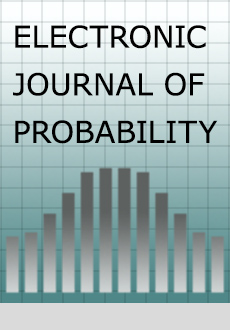Abstract
A Lévy process is said to creep through a curve if, at its first passage time across this curve, the process reaches it with positive probability. We first study this property for bivariate subordinators. Given the graph of any continuous, non increasing function f such that , we give an expression of the probability that a bivariate subordinator issued from 0 creeps through this graph in terms of its renewal function and the drifts of the components Y and Z. We apply this result to the creeping probability of any real Lévy process through the graph of any continuous, non increasing function at a time where the process also reaches its past supremum. This probability involves the density of the renewal function of the bivariate upward ladder process as well as its drift coefficients. We also investigate the case of Lévy processes conditioned to stay positive creeping at their last passage time below the graph of a function. Then we provide some examples and we give an application to the probability of creeping through fixed levels by stable Ornstein-Uhlenbeck processes. We also raise a couple of open questions along the text.
Citation
Loïc Chaumont. Thomas Pellas. "Creeping of Lévy processes through curves." Electron. J. Probab. 28 1 - 25, 2023. https://doi.org/10.1214/23-EJP942
Information





